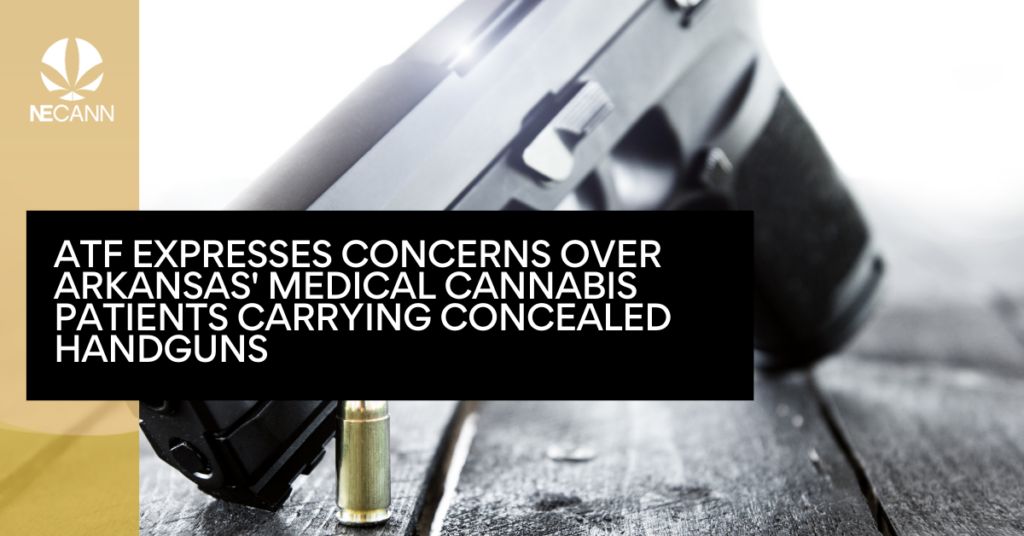The federal Bureau of Alcohol, Tobacco, Firearms and Explosives (ATF) has sent a letter outlining safety concerns to the Division of Arkansas Crime Information Operations Director, Rick Stallings. The concerns revolve around the state agency’s decision to permit medical cannabis patients to receive concealed handgun carry licenses (CHCL).
In the letter, Marianna Mitchem, Chief of the Firearms and Explosives Industry Division Office of Enforcement Programs and Services, expresses the ATF’s apprehensions. According to the letter, the ATF is worried that granting CHCLs to individuals who are federally prohibited from possessing firearms poses an “unacceptable risk of placing firearms in the hands of prohibited persons.”
While a 2023 audit by the Federal Bureau of Investigation’s Criminal Justice Information Services (CJIS) Division did not find any issues with Arkansas’ alternative permit process, the ATF had previously issued guidance to Federal Firearms Licensees (FFLs) stating that, irrespective of state laws, cannabis remains a Schedule 1 controlled substance. As a result, anyone who uses or is addicted to marijuana is considered an unlawful user of a controlled substance and is prohibited by federal law from possessing firearms and ammunition.
Arkansas passed a bill in April that safeguards the rights of medical cannabis patients to carry concealed handguns. The legislation also prevents the Arkansas State Police from considering an individual’s status as a medical cannabis patient when determining eligibility for a concealed handgun carry license.
The ATF’s letter seeks clarification from Stallings on how the state ensures that all current CHCL holders and applicants do not fall under the category of “controlled substance users,” including users of medical marijuana. Additionally, the ATF inquires about how the state reconciles its laws with federal regulations.
The letter warns that if Arkansas law does not mandate authorized state officials to verify that an individual is not a “controlled substance user,” individuals prohibited by federal law from using firearms and ammunition may obtain them through CHCLs. The ATF indicates that it may reevaluate the Arkansas CHCL as an alternative permit if it does not receive a response to these concerns within 30 days.
This development underscores the complex interplay between state and federal regulations regarding firearms and cannabis use, raising significant questions for Arkansas and other states with similar provisions.




